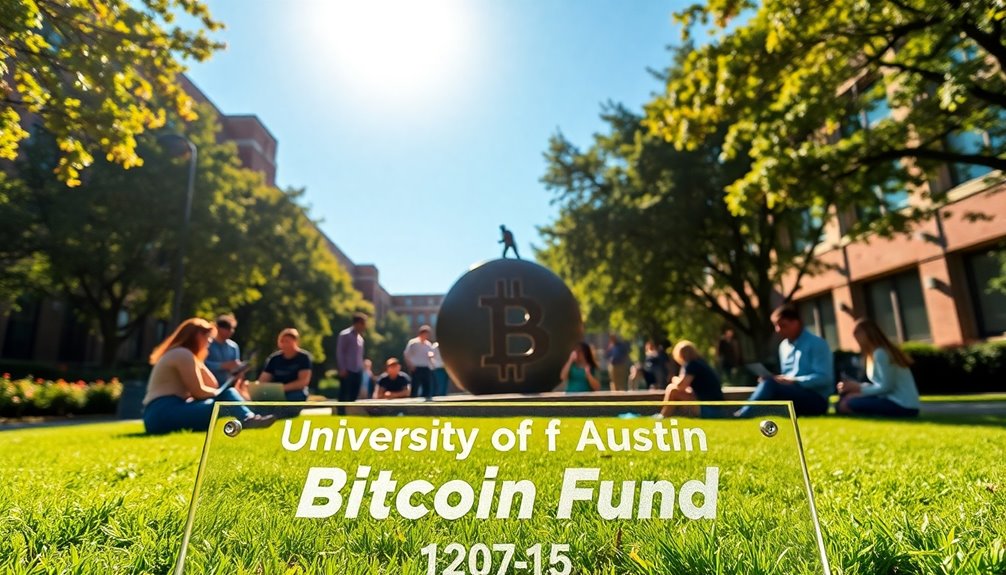The University of Austin's new $5 million Bitcoin fund is a noteworthy move in the world of academia. By integrating Bitcoin into its curriculum and partnering with Unchained for secure custody, the university is not just making a financial statement. It's reshaping how we view Bitcoin as a legitimate asset. But what does this mean for the future of higher education and institutional investment? The implications could be far-reaching.

As the landscape of higher education evolves, the University of Austin is taking a bold step by launching a $5 million Bitcoin fund, marking a significant integration of cryptocurrency into its $200 million endowment. This pioneering initiative, in collaboration with Unchained, a Bitcoin-native financial services company, shows the university's commitment to exploring alternative financial models. By holding Bitcoin for at least five years, the University of Austin is positioning itself at the forefront of financial innovation. The recent trend of new Bitcoin holders gaining control of 50% of the supply reflects strong demand and potential market shifts.
The fund's objectives extend beyond mere financial investment. It aims to weave Bitcoin into the fabric of the university's curriculum and community engagement. You can expect joint events, lectures, and debates designed to strengthen ties between the university and the Bitcoin community. This approach not only enriches the educational experience but also fosters a vibrant community around cryptocurrency, aligning with the growing institutional interest in Bitcoin. Additionally, this partnership seeks to strengthen ties between the university and the bitcoin community through collaborative initiatives.
The partnership with Unchained brings added security to this venture. They're providing a collaborative custody vault, ensuring that the Bitcoin holdings aren't just secure but also a reliable investment vehicle for the university. With such robust security measures in place, you can feel confident that the university is taking meticulous care of its assets.
The collaboration will also host prominent speakers and events to inspire potential donors, bridging the gap between academia and the rapidly evolving Bitcoin industry. Market trends show that Bitcoin has captured significant institutional interest, which could positively impact its price. While other institutions are waiting for clearer regulatory guidelines before venturing into cryptocurrencies, the University of Austin is taking proactive steps to embrace the future.
This bold move reflects a growing recognition of Bitcoin's long-term value as a digital asset. You might notice that other universities, like Emory University, are also investing in Bitcoin ETFs, indicating a broader trend within higher education. Still, the University of Austin's direct investment in Bitcoin elevates the asset to what could be considered Ivy League status.
This initiative could reshape global perceptions of Bitcoin as a legitimate financial asset and set a precedent for other institutions to follow. By integrating Bitcoin into its endowment and educational offerings, the University of Austin not only enhances its financial strategy but also positions itself as a leader in the world of higher education and cryptocurrency.









